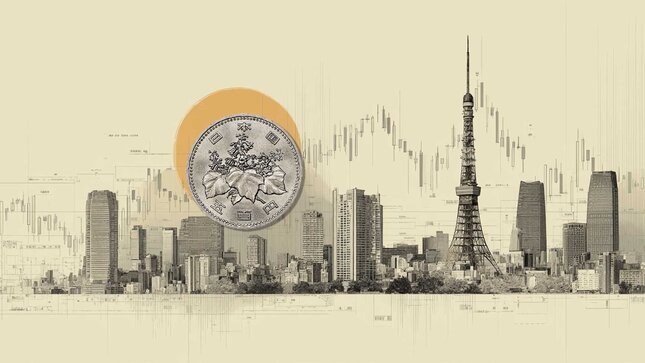1. On Certainty
The moment we are confronted with a choice (to buy, to sell, to hold, to fold, to walk away), our brains love certainty. But mother nature, life and the financial markets are not black & white. There are always exceptions; there are always situations that seem absolutely clear to you, only to find out later that you were ill-informed. In the markets, as in life, this assolves us from having to be right or wrong and give us the opportunity to be agile, practical, thoughtful – we can cut our loosers and ride our winners.
"There are no answers in this business. There's just a hell of a lot of questions." - George Russell Jr. of Frank Russell Co.
It's horrible to build your life around terms like “I don't know, maybe, up to a certain point, probably” but if you want to trade then there's no other way that I know of. So the average trader will smack some fancy lines on his chart, use oscillators he knows nothing about, use “guru” reccomendations trying to find that degree of certainty that he doesn't have. He will then believe any bit of nonsense that is said with convinction. And at the end, taken by fear, he'll decline all responsibility and will delegate the decision making to others. My contention here, is that you cannot look for certainty in the financial markets and thus you cannot control what the markets do. So we cannot allow ourselves to be frustrated when “the market went down when all indicators were pointing up” or “the market stopped me out and then reversed it's course” or “the market was so cheap that I was certain it was a value buy...but it just keeps going down!”. Do not try to bind the market to any set of rules. The market will break them all, and you will end up broke.
Most investors and traders spend too much time exposing themselves to all the informational noise that the internet allows you access too nowadays. Hence, unless they have a good filter in place which allows them to discern noise from news, information overload and analysis paralysis are always around the corner. Of course, having a good information filter is already a step in the right direction. But how many traders and investors actually realize whether they're getting sucked into the “more = better” illusion?
The investment or trading process should be easy, quick, and efficient. There are so many unknown unknowns out there that we cannot possibly approach this job thinking that by surrounding ourselves with twitter, IFR, Bloomberg, Reuters, bank reports, analyst predictions, “opening bell” commentaries and the ocasional horoscope forecast, we will be better off and more capable of selecting better stocks or better trades to get stuck into. More information might make us more confident...but it certainly doesn't make us more competent. Also, the noise-to-signal ratio has increased substantially with all the media and feeds available.
2. Knowledge vs. Wizdom
This huge increase in information available to investors has helped us increase our investment knowledge (facts or principles) and our confidence (faith or belief that we will act in a right, proper or effective way) about our actions, but not necessarily our investment wisdom (making sensible decisions and giving good advice because of the experience and knowledge that you have) or the ability to process that information. This is classic human behavior. Studies have shown that as we increase the amount of information available to us on a subject, our confidence increases. However, those same studies show that while confidence increases, competence does not. So we think we're making better decisions when in fact we're not.
Digging through all of this information and acting on "new information" (possibly over trading) as it arrives gives investors what behaviorists call, the "Illusion of Control”: the tendency for people to overestimate their ability to control events that they, in fact, have little or no control over. To quote from the book, The Art of Think ing Clearly, "focus on the few things of importance that you can really influence. For everything else: “che sarà, sarà."
"Wisdom is not a product of schooling but of the lifelong attempt to acquire it"-Albert Einstein
This might sound like a cliché, but there is no substitute for experience. Experience exposes you to all kinds of situations and gives you a chance to feel your emotional state and understand how you react to that and learn from it. It is one thing to read about how to manage a winner or encash partially on rallies and add to the position on dips, but doing it for real is of course much harder. What traders and investors alike try to do, by gathering so much "new" information as possible, is look for signs of changes in fundamentals or “news flashes” that are unknown to others. This would seem to explain the obsession – in equities - with things like "whisper earnings numbers," channel checking at retailers, networking with experts in the field to glean changes in sales trends or competitive balance or reactions to government economic figures.
In trading, as in investing, know that you cannot control the market and you cannot predict the future. So do not waste your time trying. Do not try to overlay indicators: the market does not respect them. Do not go through extensive country and/or company analysis: the fundamentals that matter will be mostly evident. Your decision making process should be simple, straightforward and effective. Don't get lost in the details.
To sum up: one of the main qualities a person should have, in order to overcome the difficulties of trading & investing, is faith in himself and the ability to let go of control. Seek to control yourself, seek to follow your plan and be disciplined. Seek efficiency (working smart as opposed to working hard) and keep it simple to stay profitable.
Good Luck!
REFERENCES
1. Seven Sins of Fund Management – James Montier 2005
2. The Art of Thinking Clearly – Rolf Dobelli
3. Trying Too Hard – Dean Williams 1981, Rockford College
4. Market Mind Games – Denise Shull
Note: All information on this page is subject to change. The use of this website constitutes acceptance of our user agreement. Please read our privacy policy and legal disclaimer. Opinions expressed at FXstreet.com are those of the individual authors and do not necessarily represent the opinion of FXstreet.com or its management. Risk Disclosure: Trading foreign exchange on margin carries a high level of risk, and may not be suitable for all investors. The high degree of leverage can work against you as well as for you. Before deciding to invest in foreign exchange you should carefully consider your investment objectives, level of experience, and risk appetite. The possibility exists that you could sustain a loss of some or all of your initial investment and therefore you should not invest money that you cannot afford to lose. You should be aware of all the risks associated with foreign exchange trading, and seek advice from an independent financial advisor if you have any doubts.
Editors’ Picks

EUR/USD: US Dollar to remain pressured until uncertainty fog dissipates Premium
The EUR/USD pair lost additional ground in the first week of February, settling at around 1.1820. The reversal lost momentum after the pair peaked at 1.2082 in January, its highest since mid-2021.

Gold: Volatility persists in commodity space Premium
After losing more than 8% to end the previous week, Gold (XAU/USD) remained under heavy selling pressure on Monday and dropped toward $4,400. Although XAU/USD staged a decisive rebound afterward, it failed to stabilize above $5,000.

GBP/USD: Pound Sterling tests key support ahead of a big week Premium
The Pound Sterling (GBP) changed course against the US Dollar (USD), with GBP/USD giving up nearly 200 pips in a dramatic correction.

Bitcoin: The worst may be behind us
Bitcoin (BTC) price recovers slightly, trading at $65,000 at the time of writing on Friday, after reaching a low of $60,000 during the early Asian trading session. The Crypto King remained under pressure so far this week, posting three consecutive weeks of losses exceeding 30%.

Three scenarios for Japanese Yen ahead of snap election Premium
The latest polls point to a dominant win for the ruling bloc at the upcoming Japanese snap election. The larger Sanae Takaichi’s mandate, the more investors fear faster implementation of tax cuts and spending plans.
RECOMMENDED LESSONS
Making money in forex is easy if you know how the bankers trade!
I’m often mystified in my educational forex articles why so many traders struggle to make consistent money out of forex trading. The answer has more to do with what they don’t know than what they do know. After working in investment banks for 20 years many of which were as a Chief trader its second knowledge how to extract cash out of the market.
5 Forex News Events You Need To Know
In the fast moving world of currency markets where huge moves can seemingly come from nowhere, it is extremely important for new traders to learn about the various economic indicators and forex news events and releases that shape the markets. Indeed, quickly getting a handle on which data to look out for, what it means, and how to trade it can see new traders quickly become far more profitable and sets up the road to long term success.
Top 10 Chart Patterns Every Trader Should Know
Chart patterns are one of the most effective trading tools for a trader. They are pure price-action, and form on the basis of underlying buying and selling pressure. Chart patterns have a proven track-record, and traders use them to identify continuation or reversal signals, to open positions and identify price targets.
7 Ways to Avoid Forex Scams
The forex industry is recently seeing more and more scams. Here are 7 ways to avoid losing your money in such scams: Forex scams are becoming frequent. Michael Greenberg reports on luxurious expenses, including a submarine bought from the money taken from forex traders. Here’s another report of a forex fraud. So, how can we avoid falling in such forex scams?
What Are the 10 Fatal Mistakes Traders Make
Trading is exciting. Trading is hard. Trading is extremely hard. Some say that it takes more than 10,000 hours to master. Others believe that trading is the way to quick riches. They might be both wrong. What is important to know that no matter how experienced you are, mistakes will be part of the trading process.
The challenge: Timing the market and trader psychology
Successful trading often comes down to timing – entering and exiting trades at the right moments. Yet timing the market is notoriously difficult, largely because human psychology can derail even the best plans. Two powerful emotions in particular – fear and greed – tend to drive trading decisions off course.


